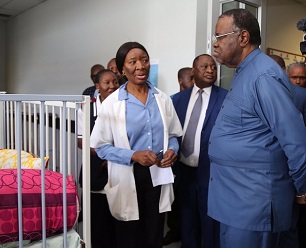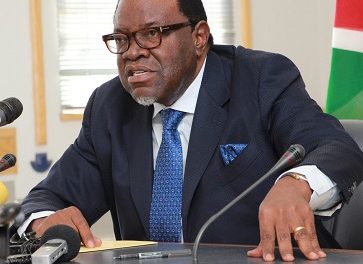
Almost two-thirds of people believe government is not prepared to deal with future health emergencies – Study

Almost two-thirds (64%) of Namibians are sceptical of the government’s ability to ensure that COVID-19 vaccines are safe and doubt its preparedness for a future public health emergency, a recent Afrobarometer study found.
The study shows that while a majority of Namibians approve of the government’s overall response to COVID-19, they are critical of inadequate relief and corruption and are sceptical of vaccine safety.
A majority of citizens say they are satisfied that disruptions to children’s education were kept to a minimum and that hospitals were adequately stocked to respond to the demands of COVID-19.
“But majorities also criticize the support offered to vulnerable families, and most believe that resources intended for combating the pandemic have been lost to government corruption,” the study shows.
Vaccine hesitancy is high as most Namibians are still unprotected against COVID-19, the Afrobarometer study shows. More than seven in 10 adult Namibians have not been vaccinated against COVID-19, and a majority of the unvaccinated say they are likely to stay that way.
Meanwhile, despite growing calls for mandatory vaccinations against COVID-19, most Namibians believe that vaccinations should be voluntary, according to the study.
Only about one in four Namibians would support a policy of mandatory COVID-19 vaccinations. And most Namibians do not support vaccinating children against COVID-19.
Namibians are divided on mandatory vaccinations for special groups: More than half support requiring the vaccine for health and frail-care workers, but only minorities agree when it comes to teachers and employees of private companies. And most do not agree with restricting access to sports, cultural, musical, and other large social events to vaccinated people only.
“Public opposition to mandatory vaccinations may limit the government’s politically plausible options for overcoming the country’s low COVID-19 vaccine uptake thus far,” the study states.
 President Hage Geingob visited the Katutura State Hospital in 2020. He found the state of the hospital “satisfactory”.
President Hage Geingob visited the Katutura State Hospital in 2020. He found the state of the hospital “satisfactory”.












































